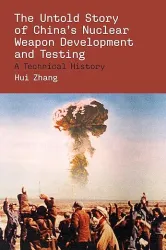Earlier this month, the United Nations’ nuclear watchdog certified Tehran’s compliance with the terms of a nuclear accord the United States, Iran and other world powers reached last April. The historic agreement is aimed at curtailing Iran’s controversial nuclear program, and paves the way for longstanding sanctions against Tehran to be lifted. Sanctions targeting Iran, and particularly its lucrative energy sector, have crippled the country economically and isolated it diplomatically.
What does the lifting of Iran sanctions mean for India?
The most immediate impact will be a rise in India’s imports of Iranian crude oil. Energy cooperation between New Delhi and Tehran has long represented a major cornerstone of bilateral ties. Given its voracious energy demands, but limited reserves at home, India has traditionally obtained more than 80% of its oil from abroad. After China, India represented the largest importer of oil from Iran, with many of India’s refineries specifically designed to process Iranian crude. The imposition of sanctions by the United Nations, United States and other Western powers, however, forced New Delhi to significantly curtail its oil imports or risk punitive consequences.
Lifting sanctions on Iran will now allow India to buy crude oil from Iran freely again. Although a rise of Iranian crude oil supplies to India is inevitable, the increase will not be huge. Western sanctions against Iran forced New Delhi to diversify its oil supply from other parts of the world, including Africa and South America. As a result, India’s dependence on Iranian crude has decreased, and imports will likely not rise to pre-sanction levels in the short to medium-term.
The certification will also allow India to once again resume purchasing Iranian crude oil with dollars. The imposition of sanctions forced New Delhi and Tehran to conduct oil trade in Indian rupees after losing access to the international banking system. The rupee-based payment mechanism the two countries were forced to establish resulted in billions of dollars of unpaid oil revenues owed to Iran that will finally be resolved.
Easing sanctions will also permit Tehran to purchase agricultural commodities such as barley, rice and soybeans from markets other than India. Indian exporters of these goods to Tehran had charged Iran premiums well over global prices while sanctions were in place. With cheaper alternatives now available elsewhere, Indian commodities traders will see a reduction in business with its Iranian customers.
More broadly, ending sanctions creates a series of new, lucrative investment opportunities for India in Iran. Both New Delhi and the Indian private sector are eager to sign commercial agreements with Tehran, while implementing those that were delayed because of sanctions. Talks regarding India’s plan to develop Iran’s strategic Chabahar Port have already intensified, while rumors surrounding the fabled Iran-Pakistan-India pipeline have once again resurfaced.
Finally, the international community is likely to witness deeper cooperation between India and Iran now that sanctions have been lifted. New Delhi and Tehran have historically enjoyed strong bilateral ties. The imposition of U.S.-led sanctions on Iran was a formidable test of India’s diplomatic agility, forcing New Delhi to navigate its robust, but ostensibly, competing relationships with Iran, the United States and Israel simultaneously. India proved itself adept at doing so, and calibrated its foreign policy carefully with each country. This included publicly downplaying its ties to Tehran in some arenas particularly affected by international sanctions. With the passage of the nuclear accord, New Delhi will likely revitalize existing cooperation with Tehran and seek new areas of engagement now that the specter of the sanctions regime no longer looms ominously overhead.
Desai, Ronak. “What Lifting Iran Sanctions Means For India.” Forbes, January 28, 2016





